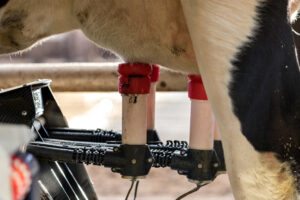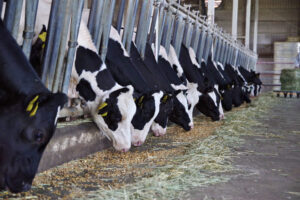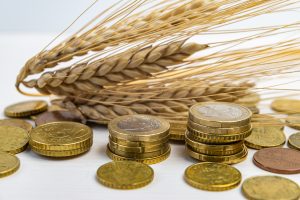After the withdrawal of growth-promoting antibiotics in 2006, anticoccidial drugs are the next target of health authorities. However, in the absence of sufficiently effective alternative solutions, the announced withdrawal has been slow to materialize. Coccidiosis remains a real thorn in the side of the poultry industry. On a global scale, its financial impact, both in terms of health and economics, is estimated at between 2 and 3 billion euros each year.
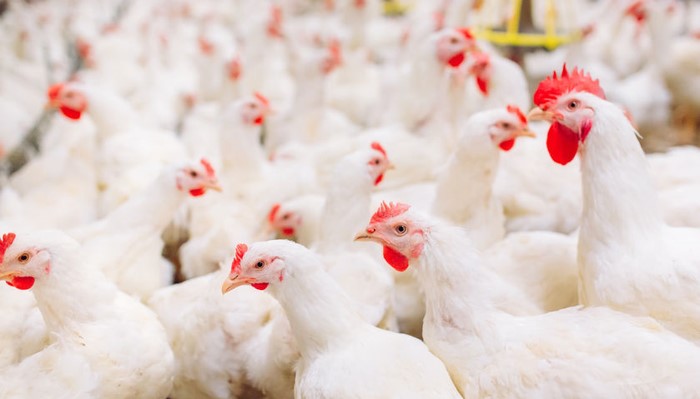
“Coccidiosis”, one of the biggest challenges in poultry industry
The origin of chicken coccidiosis in two words
Coccidiosis is a disease caused by a highly contagious intestinal parasite that can cause severe intestinal damage in chickens and other animals. Coccidiosis can lead to lower feed conversion and growth rates, digestive problems and even higher mortality in chickens.
A natural and opportunistic host in the body
In chicken, protozoa of the genus Eimeria are responsible for infections. These micro-organisms present in the animal’s body are in principle well tolerated by the animal. The animal sets up an adapted immune response to regulate the population of these Eimeria. In intensive farms, the dominant model worldwide, high population densities in small spaces lead the chicken to ingest too many oocysts. These oocysts reproduce rapidly in the body and remain highly resistant once excreted.
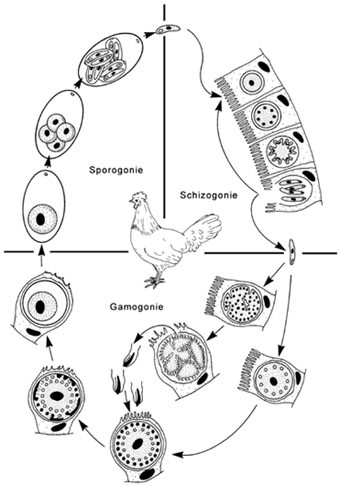
Coccidial cycle: Find out more
What strategies to contain and control coccidiosis?
- Lowering the density of farms would in theory be the simplest and most effective solution. But it comes up against a problem of production cost per m² and profitability.
- Block the Eimeria development cycle. That’s the role of anticoccidial drugs whose days are numbered.
- To increase the birds’ immune response. This is indeed an interesting lead, but here again, we need to evaluate several leads that we will address
Vaccination, an effective but costly approach
To date, there are effective vaccination programmes in place, but the spectrum must be broad enough to treat the 8 most virulent species of Eimeria responsible for coccidiosis in chickens. Although these vaccines are effective, they have a cost and they cause a drop in productivity as the vaccine is poorly accepted by the animals. The generalisation of vaccination is not conceivable as long as anticoccidials remain authorised.
Plant extracts
The role of plant extracts can be beneficial in stimulating the immune system and limiting the proliferation of oocysts in the digestive tract. Useful to help the animal to recover, they do not give similar results to current anticoccidials and require quite penalizing rates of incorporation in the feed.
Probiotics and prebiotics
They can help limit the development of oocysts in the body. While their effectiveness may vary depending on the circumstances, they often represent a high cost of treatment given their rate of incorporation into the feed.
Essential oils and spices: an original answer to explore
The effectiveness of solutions based on essential oils and/or spices is non-specific and not demonstrated at all stages of Eimeria’s development cycle. However, they constitute an original approach by stimulating the animal’s immune response which, stronger, will fight more effectively against the disease and its consequences. This is a preventive strategy enabling the animal to better adapt to its environment.

